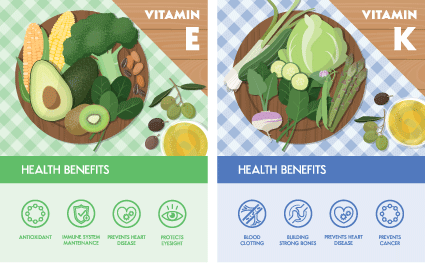
By Jonathan Evans
Herbal Information Specialist for the Herbarium
Editor’s Note: for those Prime readers who may have missed Jonathan’s previous vitamin columns covering vitamins A to K (September 2018), and the B-complexes (October 2018), you can find the articles online at www.primeontheweb.com, under the Health tab.
A happy New Year to you all! As promised, with this issue, we complete the series on vitamins.
Vitamin E
Vitamin E (Tocopherols) is measured in IU (international units). The recommended daily intake (RDI) of this vitamin, according to the National Institutes of Health is 35 IUs. The suggested level is 400 IUs.
Vitamin E – or tocopherols – is a fat-soluble vitamin, but unlike other fat-solubles such as vitamin A, it is not stored in the body for very long. Most of it is excreted in the feces.
There are several tocopherols – alpha, beta, gamma, delta, epsilon, zeta, eta, and theta. Alpha tocopherol is the best known of these and the most widely used in general.
Vitamin E is an antioxidant and is helpful in enhancing vitamin A activity. It tends to prevent blood clots from forming, prevents pituitary and adrenal hormones from oxidizing, protects lungs from air pollution, retards cellular aging (so you look younger), accelerates healing of burns, and prevents thick scars from forming when used topically. It works with other antioxidants to reduce the incidence of cancer, is excellent for heart health, and may help stall macular degeneration.
Here is an interesting little fact for you; Look at your multivitamin. Note what kind of vitamin E it contains. If it says D-alpha tocopherol, you have a natural vitamin in your formulation. If the label says dl-alpha, or dl-alpha tocopheryl, your vitamin E is synthetic. The best way to remember this is – if you see an “L” or a “y” think, “ lie.”
Why is this an important distinction? The synthetic is a left-handed molecule and your body does not recognize it as regular vitamin E. You would be lucky if you absorb half the listed amount, because your body does not have the receptors for the synthetic version as it does for a natural vitamin E.
If you live in an area with chlorinated water (and most of us do) you really need to bump up your vitamin E, because chlorinated water helps to deplete your body’s store of E.
Another interesting fact: some years ago, I got a call from a local television station, wanting my response to a story that said vitamin E was bad for you. There were doctors saying they did not recommend E for their patients, and people were in a panic trying to find multivitamins that did not contain vitamin E. When the news people faxed me the story, I laughed! When they arrived I asked them why this was even a news story. What the story said was the Heart Association suggested no more than 600-800 IUs of vitamin E daily. Consult your doctor before taking doses of a thousand or more. There was nothing in the story that said Vitamin E was a problem, except for using higher doses. Headlines do not tell the whole story.
Vitamin K
Vitamin K is measured in mcgs, or micrograms. It is a fat-soluble vitamin; its name derives from the German ”Koagulation Vitamin.”
Vitamins K1 and K2 are the natural forms. The bacteria found in your intestines can form K2. K3 is a synthetic form and is no longer recommended for therapeutic supplementation.
According to the website WebMD, there is not enough scientific evidence to establish a recommended daily allowance, but general recommendations are 65-125 mcg daily.
Vitamin K is found in green leafy vegetables, broccoli, and Brussels sprouts. Antibiotic uses can deplete the body of vitamin K.
The most common uses for vitamin K are: helps with osteoporosis and bone strengthening, stops itching due to biliary cirrhosis, treating and preventing bleeding problems for people with low levels of prothrombin, and to reverse blood thinning problems in people who were given too strong a dose of a blood thinning medication. You may find combinations of vitamin D3 and K2 used mostly for osteoporosis.
I hope you’ve enjoyed this series on vitamins and how they affect our health. Questions about anything you’ve read in the series? Write to me at the address below.
— Jonathan
Send questions on botanical remedies to: Natures Rx: Jonathan Evans at herbarium258@gmail.com, or by regular mail to: The Herbarium, 264 Exchange St., Chicopee, MA 01013. If requesting additional info, include a self-addressed stamped envelope.